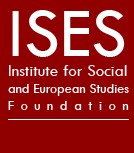One of the topics of the 29th International Summer University was the EU enlargement
EU Integration in Eastern Europe and the Western Balkans: Is there a Chance for a new East-West Dialogue?
This panel examines the ongoing and complex process of European Union integration, particularly focusing on Eastern Europe and the Western Balkans. It will address the political, economic, and social dimensions of EU integration in these regions, considering both the challenges and the progress made. The discussion aims to shed light on the future of EU expansion and the integration of these diverse regions into the broader European framework. Is the EU still viable and sustainable without further enlargement? What are the main challenges and barriers to EU integration for countries in Eastern Europe and the Western Balkans? How do the historical and cultural contexts of these regions influence their path towards EU integration? In what ways can the EU adapt its integration process to better accommodate the unique needs and circumstances of these regions?
Chair: Rubin Zemon (iASK, Center for Advanced Researches, North Macedonia)
Panelists:
- Márton Ugrósdy (Secretary of the Strategic Advisory Board to the Prime Minister)
- Vedran Džihic (OiiP, Austria)
- Christina Griessler (Andrássy Universität Budapest, Austria)
- Elira Luli (iASK, Luarasi University, Albania)
- Vigan Qorrolli (Deputy Minister of justice of the Republic of Kosovo)
- Caleb Waugh (Aktiv, Kosovo)
12:00 – 1:30 pm Lunch break
1:30 pm – 3:30 pm Panel:
What Have We Learned from the War and Disintegration of Yugoslavia? Facing the Challenges of Nationalism, Fragmentation and All-Out War in Europe
This panel confronts Europe’s violent dissolution of Yugoslavia, examining the scars left by nationalism, ethnic strife, and the war economy. In an era marked by the rise of right-wing politics and populism across a multicultural, multiethnic, and transnational Europe, we delve into the parallels and divergences between Yugoslavia’s past and today’s challenges. The discussion aims to chart a course for resolving the conflict in Ukraine, drawing on historical lessons to avoid repeating the mistakes of the past. What steps can be taken to address and mitigate similar forces currently at play in Europe, particularly with the rise of right-wing politics and populism? Given the devastating impact of the war economy on Yugoslavia, how can today’s European nations redirect resources and policies towards peace-building and economic stability, avoiding the pitfalls of over-militarization? How can the principles of transnationalism, multicultural cooperation, and solidarity be strengthened in today’s European context to provide a counterbalance to the forces that led to Yugoslavia’s dissolution?
Chair: Igor Stipić (iASK, University of Regensburg, IOS Leibniz Institute for East and Southeast European Studies, Germany, Bosnia and Herzegovina)
Participants:
- Jody Jensen (iASK, Hungary)
- Vedran Džihic (OiiP, Austria)
- Klodiana Beshku (University of Tirana, Albania)
- Ivana Stepanovic (iASK, Hungary)
